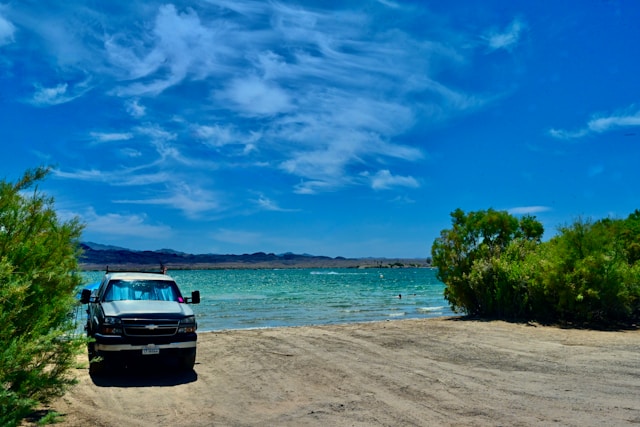Lake Havasu City, Arizona, known for its stunning lake views, vibrant community, and the iconic London Bridge, is a beloved destination for tourists seeking both relaxation and adventure. This popularity has made it a hotbed for Airbnb and other short-term rentals (STRs).
However, operating an STR in Lake Havasu City involves understanding and adhering to a set of specific local regulations designed to balance the booming tourist industry with the quality of life for residents. This guide provides a comprehensive overview of the STR regulations in Lake Havasu City, offering hosts valuable insights into how to navigate these rules effectively.
Overview of Short-Term Rental Regulations in Lake Havasu City
Lake Havasu City has implemented regulations that aim to ensure that short-term rentals contribute positively to the community and local economy, while minimizing negative impacts on residential neighborhoods.
Licensing and Registration
- No Special Licensing Required: Unlike many other cities, Lake Havasu City does not require a special license for operating STRs. However, STR operators are expected to comply with general business registration requirements and zoning laws.
- Compliance with City Ordinances: STR operators must ensure that their rental activities adhere to all relevant city ordinances, including those related to noise, waste management, and property upkeep.
Tax Obligations
Airbnb hosts in Lake Havasu City are required to collect and remit the following taxes:
- Transaction Privilege Tax (TPT): Also known as the sales tax, which includes a specific portion for transient lodging.
- Bed Tax: A city-specific tax applied to transient lodging activities.
Both taxes are critical for funding local infrastructure and tourism-related activities. Hosts can register with the Arizona Department of Revenue to manage these tax obligations, and many choose to utilize Airbnb’s platform, which can automatically collect and remit these taxes on behalf of the hosts.
Safety and Compliance Standards
- Building and Health Safety Standards: All STRs must meet specific building and health safety standards to ensure the well-being of guests. This includes having functioning smoke detectors, carbon monoxide detectors, and maintaining overall cleanliness and structural integrity.
- Regular Inspections: While not routinely required, STR properties may be subject to inspections if there are complaints or concerns from the community about specific safety or health violations.
Top 100 Airbnb Rental Markets

Instantly compare the top 100 short-term (Airbnb) rental markets in the US
Community Relations
- Noise Ordinances: Lake Havasu City enforces noise ordinances, particularly between 10 PM and 7 AM, to ensure that the residential peace is not disturbed by STR activities.
- Parking Regulations: Adequate parking must be provided at the STR property to prevent overflow onto streets or impacts on neighborhood parking. Hosts must manage their property listings to reflect the available parking accurately.
- Neighborhood Impact Considerations: Hosts are encouraged to communicate with their neighbors about their STR operation to maintain good relationships and address any potential issues proactively.
Steps to Compliance
To ensure your Airbnb operates within the legal framework of Lake Havasu City, follow these steps:
- Ensure Proper Registration: Register your business if not already done, and ensure compliance with local zoning laws.
- Set Up Tax Collection: Register with the Arizona Department of Revenue to collect and remit the required taxes. Take advantage of Airbnb’s automated tax collection features if available.
- Prepare Your Property: Make sure your property complies with all safety and health standards. Consider a professional inspection to identify any potential issues.
- Educate Your Guests: Provide guests with clear house rules regarding noise, parking, and trash disposal to ensure they adhere to local ordinances.
- Engage With the Community: Maintain open lines of communication with neighbors to foster a positive relationship and address any concerns they may have about your STR operation.
Resources for Airbnb Hosts in Lake Havasu City
- City of Lake Havasu Official Website: Offers information on local ordinances and compliance requirements for STRs.
- Arizona Department of Revenue: Provides resources for tax registration and compliance.
- Local Business Associations: Joining local business associations can provide support, advocacy, and education on best practices for STR operators.
By understanding and adhering to these guidelines, Airbnb hosts in Lake Havasu City can ensure their operations are not only legal but also beneficial to both their guests and the local community. Whether you’re just starting out or are looking to ensure your ongoing operations are up to standard, understanding and implementing these regulations is key to your success as a short-term rental host in Lake Havasu City, AZ.


